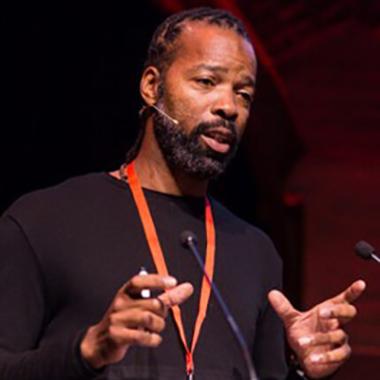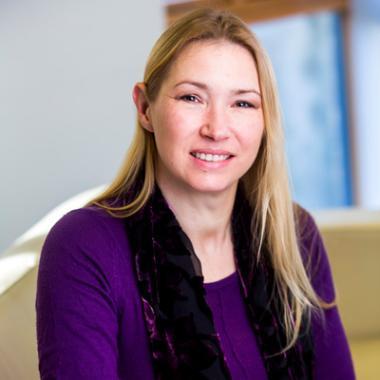
Join a panel of alumni as they share their personal and professional experiences of facing Impostor Syndrome, and discuss practical tips and advice on how to manage and overcome it.
During the event the panel will discuss:
- Defining what Impostor Syndrome is
- Common triggers for impostor syndrome
- Impostor Syndrome in the workplace and higher education
The panel will also answer your questions during the Q&A session following the talk.
This event is free, but you must register your place in advance.
About the speakers

Dr Deborah Husbands, Senior Lecturer in Psychology, University of Westminster (PhD, 2019)
Dr Deborah Husbands is a Senior Lecturer in Psychology at the University of Westminster and a Chartered Psychologist. However, her journey through higher education was frequently coloured by feelings of being an impostor – and for several reasons. Not only was she a mature student when she started her undergraduate degree in Psychology, but she was just one of a handful of Black female psychology students, leading to a poor sense of belonging. She also had no previous knowledge of psychology, so this was new territory. Despite these challenges, Deborah graduated with a first-class honours in Psychology, a teaching qualification with distinction (PGCHE) and a PhD in minoritised student experiences in higher education. She now explores the phenomenon as a researcher with a keen interest in what it means to study and work while feeling like an impostor.
Deborah engages with critical race theoretical frameworks such as intersectionality and uses qualitative research methods to explore the experiences of minoritised groups. As a sociocultural psychologist, she is part of several research projects that include motivations for sharing political disinformation on social media, museum experiences and broadening participation through co-created inclusive digital museum audio, and utilisation of a chatbot for advice on sexual health in minoritised ethnic populations.
Deborah holds a Fellowship of the Higher Education Academy and is an Associate Fellow of the British Psychological Society. She works collaboratively with other universities to address issues that contribute to an awarding gap for some student groups in higher education. Deborah is also the Outreach Coordinator for the School of Social Sciences, Co-Chair of the BME Network, and leads Westminster's Black History Year programme.

Karl Donaldson – Manager Employment Trainer, Wipers Youth (Psychology BSc, 2019)
Karl has been a youth practitioner for over 25 years and has witnessed how the impact of misdiagnosis, poor-education and socio-economic status can often lead to poor opportunities and negative lifestyles. He is dedicated to supporting young people and helping them use creative media to find their voices and speak their authentic truths.
Karl’s job roles have included data / fibre / electrical engineer, project supervisor (probation service) and a support worker at an NHS specialist addiction and mental health unit. He's also worked in other community settings that have added more depth to the knowledge he has acquired over the years.
His mission is to help young people look at the story of their own lives differently and supportively challenge their comfort zones and any unhealthy beliefs they may have about themselves.

Natasha Ramachandran – Current PhD student, University of Westminster (Psychology BSc, 2012)
Natasha’s research investigates the transition between sleep and wakefulness with a particular focus on the methodology that uses salivary hormones. Natasha was the first to assay salivary melatonin in the labs at the University of Westminster.
Alongside her PhD, Natasha has nearly a decade of teaching experience within the Psychology department. She is passionate about supporting the academic careers of others where she has often mentored and guided her students around the discussion of postgraduate research and further education.
Natasha is due to complete her PhD in Psychneuroendocrinology in 2023.

Caron Bradshaw OBE, Chief Executive Officer, Charity Finance Group (Law LLB, 1993)
Caron joined Charity Finance Group (CFG) in 2010 from the ICAEW where she was Head of the Charity and Voluntary Sector. In addition to supporting a number of small charities and community organisations, Caron has been a member of the NCVO’s National Assembly, has sat on a number of government working parties, is a member of the Church of England Pension Board’s Audit and Risk Committee, the Finance and Risk committee of the British Asian Trust, the Charities SORP Committee and a non-executive director of Origin Housing. Until recently Caron was Chair of the Board of the Directory of Social Change (and chairs her local hockey club).
Caron is a trained Barrister and has a wide array of experience across charity, regulation/law, policy, member support, and professional ethics. In 2015, Caron was named Charity Principal of the Year at the Charity Times Awards. In 2016 she received the Association Excellence Award for Leadership. Caron is an avidly ‘social’ CEO and has made it into the top 30 social CEOs in 2013, 2014 and 2015.
In October 2020, Caron was named Woman of the Year (non-CCAB) at the Women in Finance and Accountancy Awards and was awarded an OBE in the New Year’s Honours list 2021, honoured for her services to charity.
